The Mediterranean diet is a currently popular type of healthy eating. The history of the name of this diet is very interesting. In general, this is a peculiar set of eating habits of the inhabitants of the Mediterranean region. That is why it received such a name. Here you can find the nutritional principles of nutrition of people from 16 countries - Italy, Greece, Spain, Portugal, Crete, etc.
The advantage of this type of nutrition was first noticed in the middle of the last century. It was then that a doctor from America, Ancel Keys, noticed that people living in the south of Greece practically do not suffer from chronic diseases and live a very long time. Ancel Keys followed this diet for the rest of his life. He lived to be almost 101 years old, only 1 month short of his birthday. This, of course, could be due to genetic predisposition, but, nevertheless, it is Ancel Keys who is considered the founder of the famous Mediterranean diet. The modern dietary model was developed in 1993, and already in 2013 the Mediterranean diet was recognized by UNESCO as part of the intangible heritage of the Mediterranean countries.

Principles of the Mediterranean Diet
The most important principle of the Mediterranean diet is strict adherence to the balance of food components. In such a diet, carbohydrates account for about 60%, fats – 30%, and only 10% of the total diet consists of proteins.
The carbohydrate component comes primarily from vegetables and fruits, which are consumed fresh. For residents of the Mediterranean, where the sun shines most of the time and the air temperature is above 0 degrees, this is not particularly difficult. A much smaller part of this component of the diet belongs to pasta and bread. But here too there is a clear boundary. To make pasta, only durum wheat should be used, and bread should only be made from whole grains.
Olive oil serves as healthy fats - 30% of the entire diet. Ideally, olive oil should be cold pressed.
And only in very small quantities (10%) are low-fat fish, various seafood, and legumes consumed. It is from these products that the body obtains the proteins it needs. They try not to eat eggs at all, or no more than 3-4 eggs per week. Any animal meat is treated with great restraint.
There are a number of other principles of the Mediterranean diet that allow you to achieve amazing results:
- Fractional power system. Eat at least 4 times a day. Moreover, 3 meals should be more saturated.
- Any meal should include vegetables and fresh herbs.
- When choosing between meat and fish, preference is given to fish and various seafood. They predominate in this type of diet.
- It is recommended to eat lean meat and poultry; it is recommended to completely exclude red meat with fat.
- Dairy products include low-fat cottage cheese, cheese, and a variety of yoghurts.
- Olive oil is consumed as the main source of healthy fats.
- They try to cook food either by steaming, baking or grilling.
- A wide variety of legumes are eaten (from peas to lentils, for every taste).
- You need to drink at least 1. 5 liters of water per day.
- They try to eliminate salt from the diet, replacing it with various herbs and spices.
- Similarly, sugar is excluded, giving preference to natural honey.
- Bread is consumed in small quantities, and only whole grain. Ideal if it is homemade baked goods.
- Pasta is preferable from durum wheat.
- As a dessert, fruits that are ripening at the moment are used.
- A very important component is constant physical activity, a good positive mood and a smile.
It is necessary to say in more detail about the following principle. This is alcohol consumption. But, naturally, this is not any alcohol, but only dry red grape wine and in small quantities (for men - 200 ml per day, and for women - 150 ml). Medicine has long argued that drinking natural dry wine improves the functioning of the immune system, strengthens the body and prevents the development of cancer processes due to the antioxidants contained in wine. But, naturally, the wine should be natural and consumed in limited quantities.
Mediterranean diet for older adults

This type of nutrition is very relevant not only for losing weight as a diet, but also as a way to stay healthy and active longer. It’s not for nothing that the founder of this diet, American doctor Ancel Keys, lived for almost 101 years adhering to this type of diet. Research by modern doctors only confirms these facts. In 2018, according to the results of an experiment (Journal of the American Geriatrics Society), it was proven that older people who adhere to this diet are much less susceptible to senile fragility.
In addition, Spanish scientists say that a Mediterranean diet for older people helps maintain their communication abilities and also reduces the risk of suffering from senile dementia.
Various studies by scientists from Sweden and Denmark have proven that the diet contributes to low levels of bad cholesterol, strengthens the skeletal system, alleviates inflammatory processes in arthritis, and generally improves health and increases life expectancy.
Benefits and Disadvantages of the Mediterranean Diet
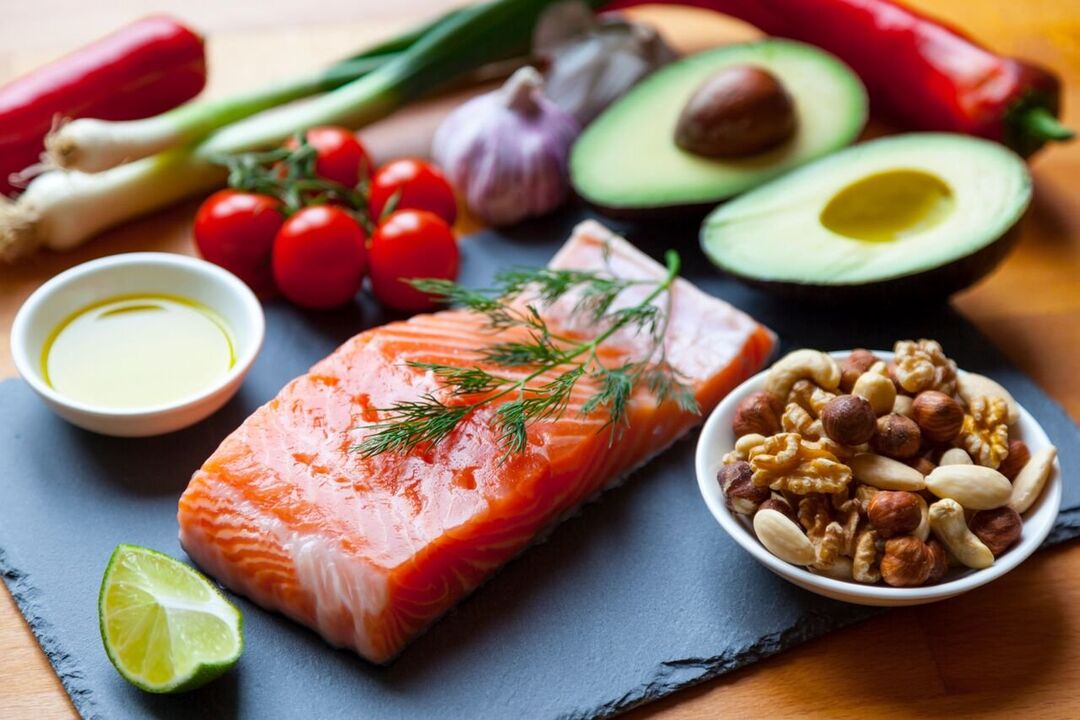
The Mediterranean diet is unique in that the foods eaten consist of simple, easily digestible proteins and are rich in vitamins and mineral salts. The diet is rich in polyunsaturated acids, plenty of fiber and bioactive substances. Omega-3 acids, which are found in fish, seafood, olives, olive oil, prevent blood thickening, reduce the risk of blood clots in the circulatory system, making blood vessels more elastic. Thus, reducing the likelihood of strokes, heart attacks and other heart diseases. As noted earlier, the Mediterranean diet helps improve the general condition of the body and increases life expectancy by an average of 10-15 years.
This is practically the only diet that includes a huge number of different types of foods in the diet of the person following it. And at the same time, it does not greatly limit the methods of cooking. Thanks to this, this diet is quite easy to adhere to. At the same time, the body does not fall into a state of mild panic, does not begin to stock up on nutrients "for a rainy day, " but consistently switches to healthier foods, receiving everything it needs for normal functioning. This is where the genius of this diet lies.
But for all the benefits of the Mediterranean diet, it also has its drawbacks. There are certain moments when such a system can lead to a sharp deterioration in a person’s condition.
With this type of diet, many fruits and vegetables are used daily, which, for the most part, consist of fiber. This is one of its main principles. Therefore, people suffering from stomach ulcers, intestinal ulcers or other diseases of the stomach and intestines are better off avoiding such a diet. It is also necessary to treat it with caution for those who suffer from allergies to any product.
Another, very significant for our modern realities, disadvantage of the Mediterranean diet is the high price of some products that form the basis of the diet.
Despite the fact that most people call it a diet, it is more of a type of nutrition, a way of life. And it does not provide quick results in losing weight, like other diets that strictly limit food intake. It is usually used to improve the health of the body, and not for sudden weight loss.
Allowed and prohibited foods on the Mediterranean diet
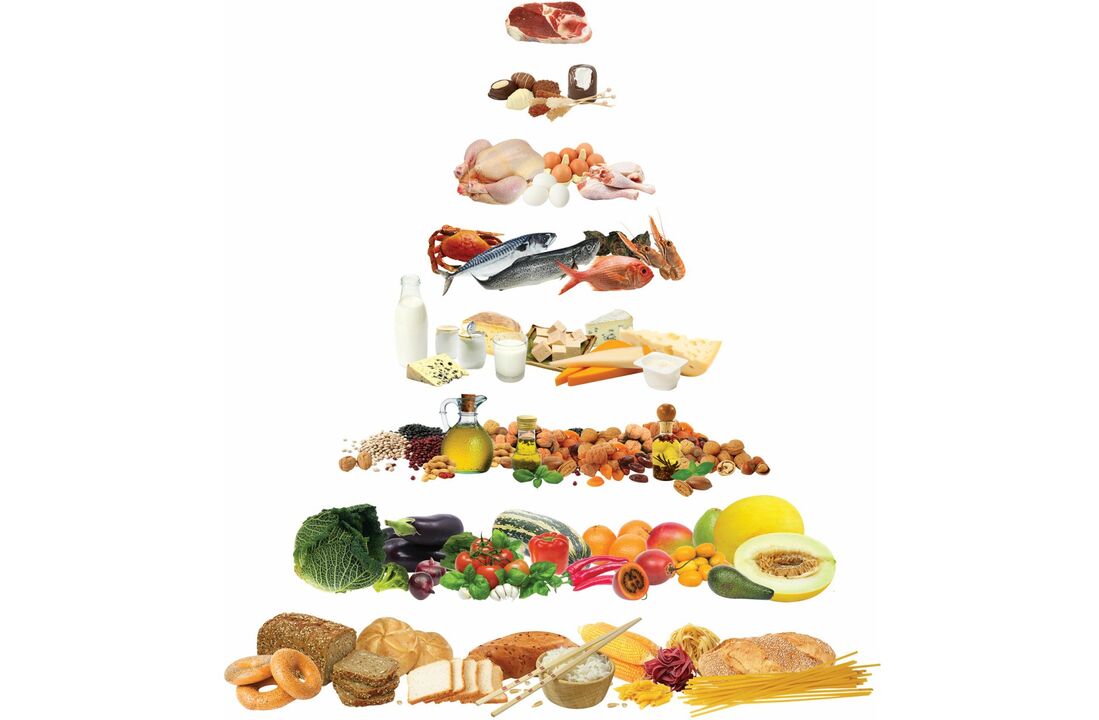
Despite the fact that the main distinguishing feature of the Mediterranean diet is the variety of foods allowed for consumption, it also has its limitations. All these products are formed into groups that are placed in a kind of food pyramid. It clearly presents all categories of products allowed for consumption, as well as the permissible quantity and frequency of use.
The Mediterranean diet is based on physical activity, which does not mean grueling workouts, but daily walks, exercises, jogging in the park, etc. The main thing is regularity. It is also very important to pay attention to maintaining sufficient water balance in the body. It is recommended to drink at least 6 glasses of water per day, which in total will be about one and a half liters of water. If desired, you can add freshly squeezed lemon juice to the water. Water can be replaced with green tea and a small amount of coffee (usually in the morning).
Also permitted and recommended liquid is natural dry red grape wine. You can drink it daily: men – 250 grams, women – 150 grams.
The next sector of the pyramid is products that are recommended for daily consumption. These can be products of plant origin - seasonal fruits and vegetables, whole grain bread, legumes, nuts and a variety of seasonings that largely replace salt. At the same time, they try to ensure minimal heat treatment, consuming fresh products. This same sector of the food pyramid includes low-fat varieties of cheese and cottage cheese, and natural yogurt.
Special mention should be made about olive oil. It is a source of healthy natural fat and completely replaces butter, margarine and other fats after industrial processing from the diet.
The third sector contains products that can be consumed one to two times a week. These are low-fat fish, seafood, poultry and several eggs (3-4 eggs per week, including those used in baking). The usual sweets are also located here. But the Mediterranean diet welcomes their replacement with fresh fruits or dried fruits, as well as honey.
In the uppermost sector of the Mediterranean pyramid there is meat, which can be eaten no more than once a month. It is advisable to choose lean meats. A single serving should not exceed 500 grams.
The basis of this diet is not careful calorie counting, but a healthy lifestyle and a clear nutrition strategy. But even taking into account all the nuances, this is a diet, following which you will have to give up some dishes. These are fatty meats, sugar, refined (not whole) cereals, refined oils and trans fats (margarine), fast food, canned food, butter, a variety of "cakes, " and smoked meats.
Mediterranean diet: menu for the week
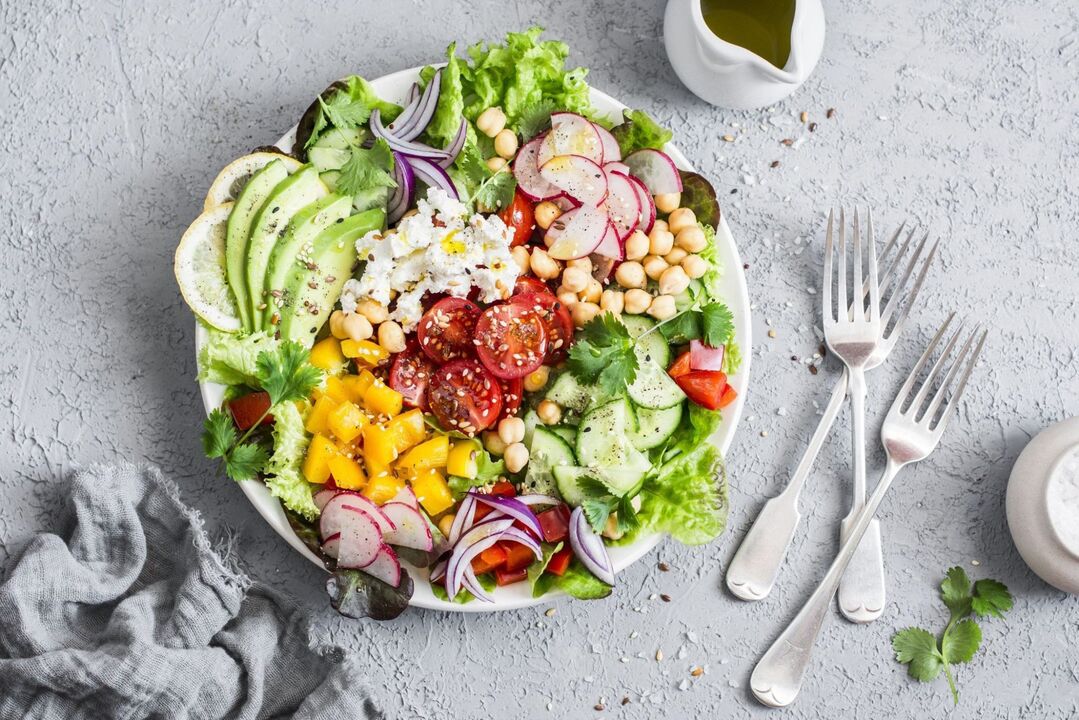
The Mediterranean diet for weight loss includes the following menu for the week.
Day 1
- Breakfast:It is suggested to eat seasonal fruits, unflavored yogurt with cereal flakes, and lemon juice.
- Dinner:prepare a vegetable salad with olive oil dressing, steamed or grilled fish, low-fat cheese, whole grain bread, coffee, dark chocolate (slice).
- Afternoon snack:nuts (a handful) and tea (honey if desired).
- Dinner:Mediterranean chowder, pasta, seasonal vegetable salad and wine.
Day 2
- Breakfast:orange juice (freshly squeezed), fruits, sprouted wheat grains, natural yogurt and coffee.
- Dinner:tomatoes (slices) with olive oil, rabbit with vegetables and spaghetti, red wine, coffee and dark chocolate.
- Afternoon snack:fruits and green tea.
- Dinner:fried or boiled eggs, French onion soup, raw vegetables, low-fat cheese and bread.
Day 3
- Breakfast:grapefruit juice, fruit, oatmeal with milk and honey.
- Dinner:seafood, seaweed, whole grain bread, glass of wine, coffee without sugar.
- Afternoon snack:cocoa.
- Dinner:boiled turkey, beans, salad with garlic, low-fat yogurt and wine (1 glass).
Day 4
- Breakfast:juice of 1 lemon, seasonal fruits, muesli, natural yogurt, tea.
- Dinner:carrot and cabbage salad dressed with lemon juice and olive oil, spinach and entrecote, low-fat yogurt, natural coffee, a slice of dark chocolate.
- Afternoon snack:dried fruits, walnuts, green tea.
- Dinner:fish soup, lentil salad, low-fat cheese, fresh bread.
Day 5
- Breakfast:juice of 1 orange, seasonal fruit, low-fat yogurt, fresh bread and natural black coffee.
- Dinner:salad with shrimp and pasta, fish with a side dish of cabbage and broccoli, fresh cheese, a piece of bread, wine if desired, a cup of coffee and dark chocolate are allowed.
- Afternoon snack:natural yogurt, green tea.
- Dinner:pea soup, mushrooms baked with tomatoes, fresh cottage cheese.
Day 6
- Breakfast:juice of 1 grapefruit, fruit in any quantity, cereal muesli, fresh yogurt.
- Dinner:Grilled fish, vegetable risotto. If desired, a cheese plate, red wine and coffee with chocolate.
- Dinner:cabbage salad, natural ham with mashed potatoes, dried figs, wine.
Day 7
- Breakfast:juice of 1 lemon, seasonal fruits, cottage cheese in any form, dry yeast for making beer, hot chocolate.
- Dinner:liver pate, sea fish with a side dish of eggplant, cheese plate, wine, chocolate cream, coffee.
- Afternoon snack:homemade sweet pastries, tea.
- Dinner:mushroom casserole, fish soup, yogurt.
Recipes for dishes from the Mediterranean diet menu
Let's take a closer look at the recipes for dishes from the Mediterranean diet menu for weight loss.
Mediterranean Chowder
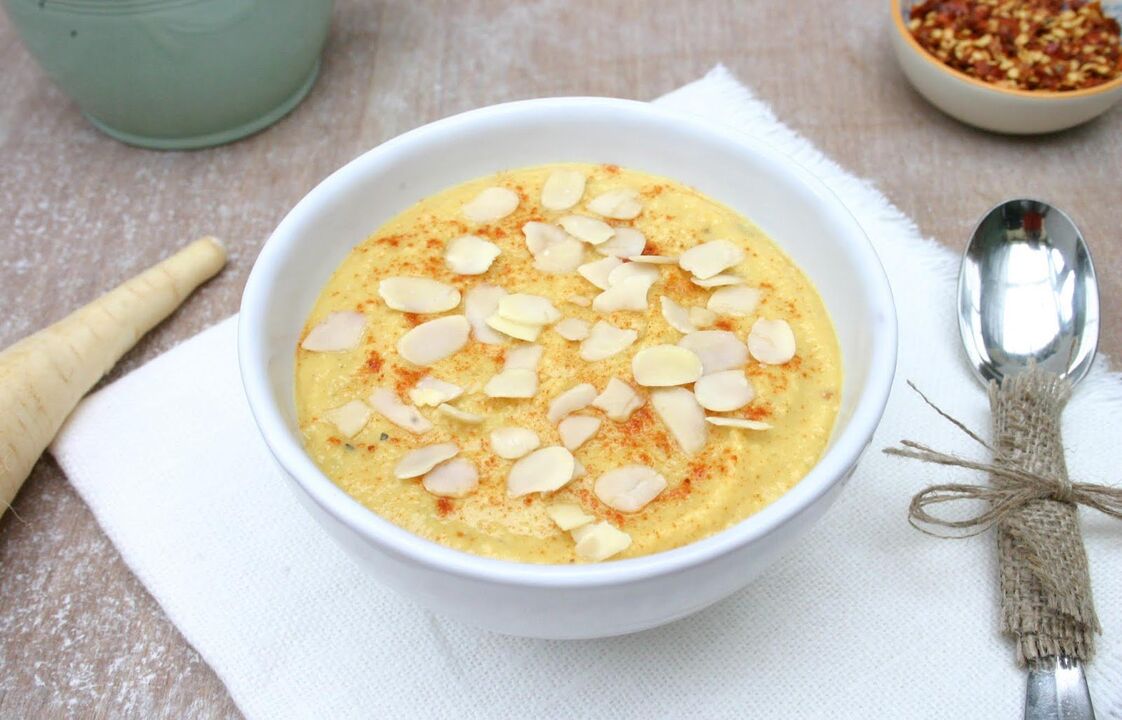
To prepare the dish you will need:
- almonds – 300 grams;
- garlic – 2 cloves;
- red pepper - on the tip of a knife;
- lemon juice – 50 ml;
- canned beans – 440 grams.
Preparation:
- All ingredients must be ground in a blender to a paste.
- Add a small amount of water and bring to a boil.
- Separately, chop the almonds in a blender.
- Serve Mediterranean-style chowder with chopped almonds, crackers and chopped herbs.
Vegetable risotto

To prepare the dish you will need:
- onions (large) – 1 pc. ;
- garlic – 2 cloves;
- zucchini (medium) – 1 pc. ;
- eggplant (medium) – 1 pc. ;
- sweet pepper (red) – 1 pc. ;
- rice for risotto – 300 grams;
- greens – 1 bunch;
- vegetable broth or water – 1. 5 l;
- olive oil - 50 ml.
Preparation:
- Vegetables (zucchini, eggplant and peppers) are cut into small cubes, after removing seeds and peels (if necessary).
- Place the prepared ingredients on a greased baking sheet and place in an oven preheated to 180 ºC for 20 minutes.
- Peel the onion and garlic, finely chop and sauté in a frying pan for 1-2 minutes, add washed rice.
- Mix the products in the frying pan, gradually adding water, for 20 minutes.
- Add vegetables from the oven to the resulting mass and mix thoroughly.
- Decorate the vegetable risotto with herbs and serve.
Shrimp and Pasta Salad
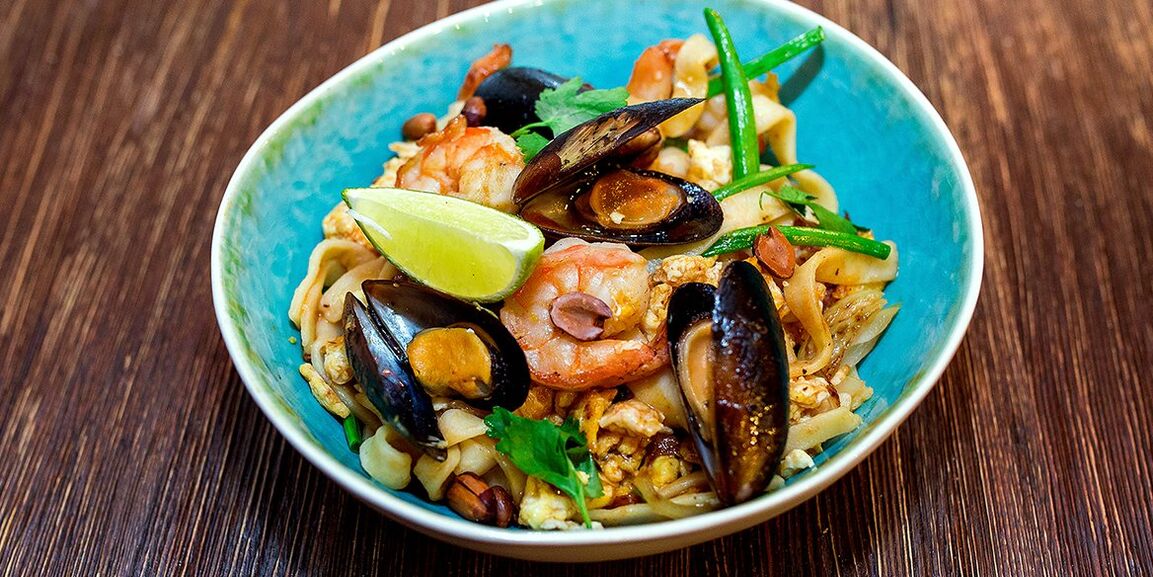
To prepare you need:
- low-fat cheese – 40-50 grams;
- broccoli – 7 balls;
- mussels – 120 grams;
- basil – 3 leaves;
- shrimp – 120 grams;
- pasta – 90 grams;
- boiled or canned beans – 90 grams;
- garlic – 3 cloves;
- olive oil – 3 tbsp. spoons;
- salt
Preparation:
- Grate the cheese or grind it in a blender.
- Boil mussels and shrimp in salted water until tender (3-5 minutes depending on size).
- Boil the pasta in the same way.
- Grind the garlic and basil in a blender.
- Mix the prepared ingredients, season with salt and olive oil. Shrimp and pasta salad is ready.
Mediterranean diet: reviews from nutritionists

Reviews from nutritionists about the Mediterranean diet are positive, as it is, by and large, a healthy, balanced diet. It has virtually no contraindications.
But some nutritionists (Joel Fuhrman) warn against being too one-sided in understanding the essence of this diet. Excessive consumption of some types of foods to the detriment of others (olive oil and cheese), consumption of pasta and bread made from white flour can negatively affect health.
This diet is based on daily physical activity, consumption of large amounts of vegetables, fruits, legumes, nuts, fish, and dairy products. It is compliance with absolutely all the requirements and nuances of this diet that allows you to achieve good results without harm to health.












































